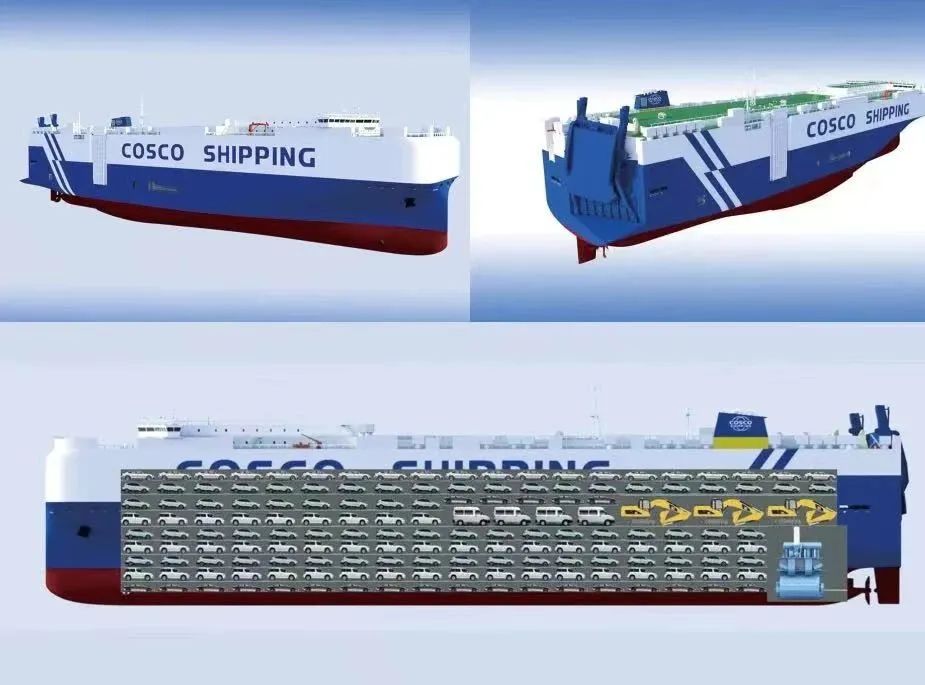Guangzhou Yuanhai Automobile Shipping, a joint venture led by Cosco Shipping Specialized Carriers, has joined forces with Japan’s Santoku Senpaku to order six LNG-powered pure car and truck carriers in China.
Fujian Mawei Shipbuilding and Xiamen Shipbuilding Industry will build these dual-fuel LNG-powered PCTCs with a capacity of 7,500 units, according to a statement by XSI.
XSI said this contract was signed during an online ceremony. It follows the order by Sallaum Lines at Fujian Mawei for two LNG-powered PCTCs with the same capacity.
Both XSI and Fujian Mawei are part of Fujian Shipbuilding Industry Group.
XSI said the six new LNG dual-fuel vessels would have a length of 199.9 meters, a width of 38 meters, and 13 decks.
The shipbuilder did not reveal the price tag or the delivery dates for the vessels.
Large LNG-powered car carrier fleet in the making
Guangzhou Yuanhai Automobile Shipping is a third-party auto logistics supply chain company jointly funded by Cosco Shipping Specialized Carriers, Shanghai International Port Group Logistics (SIPGL), and SAIC Anji Logistics.
The company said in a separate statement that it would take delivery of these new LNG-powered vessels in 2025 and 2026.
With this order, its fleet would grow to 21 LNG-powered car carriers, it said.
Shipbuilding sources said that Cosco Shipping had earlier this year placed an order for 15 LNG-powered car carriers, including at GSI and SWS, while the JV would charter these six PCTCs from Santoku Senpaku.
VesselsValue data shows that Cosco Shipping Specialized Carriers placed an order for six LNG-powered PCTCs with a capacity of 7,500 units at GSI in April. Each of the vessels has a price tag of $86 million.
Cosco Shipping said in a statement on December 12 that, in order to alleviate the shortage of PCTC shipping capacity in the Chinese market, Guangzhou Ocean Car Carrier Transportation had launched a new shipbuilding plan.
The firm said that the JV would put more than 15 large LNG dual-fuel PCTCs with a capacity of 7,000-8,500 units into service from the second half of 2024.
With the delivery of new capacity, the company would gradually expand its route coverage to Europe, South America, Red Sea, Mexico, Australia, and other regions.
In addition, it would also work together with various parties to provide comprehensive logistics supply chain solutions involving containers, special liners for collapsible car frames and those for machinery vehicles for China’s auto exports, it said.

